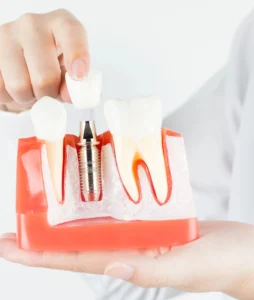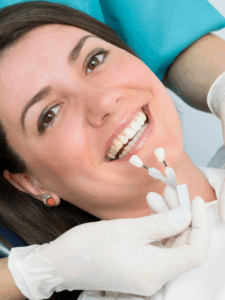Welcome to our comprehensive guide on tackling bad breath, a common concern that can affect anyone. At West Hills Smiles, we understand the impact bad breath can have on your confidence and social interactions.
If you’re seeking dental care treatment in West Hills or General Dentistry Services Calabasas, our dedicated team, led by Dr. Mike Salekian, is here to guide you through the causes, effective solutions, and preventive measures to combat bad breath effectively.
Reach out to us, and let us guide you toward a future with refreshing, worry-free breath.
Understanding the Causes of Bad Breath
Bad breath, or halitosis, can originate from various sources. Knowing these causes is the first step toward effective treatment.
1. Poor Oral Hygiene
Inadequate brushing and flossing lead to food particles remaining in your mouth, causing a foul odor.
2. Dietary Choices
Certain foods like garlic, onions, and spices can produce strong odors when digested and metabolized.
3. Dental Issues
Tooth decay, gum disease, and oral infections can contribute significantly to bad breath.
4. Dry Mouth
Insufficient saliva production can result in a dry mouth, which allows bacteria to thrive and produce unpleasant odors.
5. Smoking and Tobacco Use
These habits not only stain teeth but also contribute to persistent bad breath.
6. Medical Conditions
Conditions like sinus infections, respiratory tract infections, and diabetes can cause bad breath.
Effective Solutions to Tackle Bad Breath
Now that we’ve identified the causes, let’s delve into effective solutions to combat bad breath and maintain optimal oral health.
1. Improve Oral Hygiene
Enhance your oral hygiene routine by following these practices:
a) Brushing
Brush your teeth at least twice a day using fluoride toothpaste to remove plaque and food particles.
b) Flossing
Clean between your teeth daily to eliminate debris and plaque that a toothbrush can’t reach.
c) Tongue Cleaning
Gently clean your tongue with a tongue scraper or your toothbrush to remove bacteria and residue.
Reach out to us to discuss your dental concerns and explore anxiety-free dental care.
2. Maintain a Healthy Diet
Make mindful dietary choices to keep bad breath at bay:
a) Stay Hydrated
Drink plenty of water to maintain saliva production and keep your mouth moist.
b) Limit Odorous Foods
Minimize consumption of strong-smelling foods and drinks to reduce bad breath.
c) Chew Sugar-Free Gum
Chewing gum stimulates saliva production, aiding in the removal of bacteria and food particles.
3. Regular Dental Check-ups
Prioritize regular dental check-ups and cleanings to ensure a healthy mouth:
a) Visit Your Dentist
Schedule routine dental appointments for professional cleanings and thorough examinations of your oral health.
b) Address Dental Issues
If you have dental problems like cavities or gum disease, timely treatment is crucial in preventing bad breath.
4. Quit Smoking and Tobacco Use
If you smoke or use tobacco products, consider quitting:
Consult a Professional
Seek guidance from a healthcare professional or support group to help you quit smoking and tobacco use.
Preventive Measures for Long-term Fresh Breath
Prevention is key to maintaining a consistently fresh and pleasant breath. Implement these practices to tackle bad breath effectively.
1. Rinse Your Mouth: Effective Food Particle and Bacteria Removal
After you eat, remnants of food can linger in your mouth, promoting bacterial growth and potentially causing bad breath. Rinsing your mouth with water is a simple yet highly effective habit. Here’s why:
a) Food Particle Removal
Swishing water in your mouth helps dislodge food particles stuck between teeth or in crevices. These particles, if left untouched, can provide a breeding ground for bacteria.
b) Bacterial Dilution
Water helps dilute the concentration of bacteria in your mouth. Bacteria feed on food particles, and reducing their numbers reduces the likelihood of bad breath.
c) Stimulating Saliva
Rinsing also stimulates saliva production, which is crucial for maintaining oral health. Saliva naturally washes away food particles and bacteria, preventing the onset of bad breath.
2. Use Mouthwash: Tackling Bacteria with Antimicrobial Mouthwash
Incorporating mouthwash, especially an antimicrobial one, into your daily routine can significantly contribute to combating bad breath and promoting good oral health. Here’s why mouthwash is essential:
a) Killing Bacteria
Antimicrobial mouthwash contains ingredients that target and kill the bacteria responsible for bad breath, leaving your mouth feeling refreshed and odor-free.
b) Neutralizing Acidity
Some mouthwashes neutralize the acidic environment in your mouth, which is favorable for bacteria growth. This helps in controlling bacterial populations.
c) Reaching Inaccessible Areas
Mouthwash can reach areas that might be challenging to clean with a toothbrush or floss, ensuring a more thorough oral hygiene routine.
Book your appointment now and embrace a worry-free dental experience with West Hills Smiles.
3. Regularly Replace Your Toothbrush: Optimal Brushing with a Fresh Brush
Your toothbrush plays a vital role in maintaining oral hygiene. Over time, the bristles of your toothbrush wear down, reducing its effectiveness. Regularly replacing your toothbrush is crucial for optimal oral care. Here’s why:
a) Bristle Effectiveness
Fresh bristles effectively remove plaque and food particles from your teeth and gums. Worn-out bristles won’t clean as efficiently.
b) Preventing Bacterial Build-up
Old toothbrushes can harbor bacteria, which defeats the purpose of cleaning your mouth. Regular replacement minimizes bacterial growth.
c) Maintaining Brush Shape
New toothbrushes maintain their shape, ensuring even and effective cleaning across all surfaces of your teeth and gums.
4. Stay Consistent: Adherence to a Rigorous Oral Hygiene Routine
Consistency is the cornerstone of maintaining good oral health and preventing bad breath. Here’s why staying consistent matters:
a) Preventive Maintenance
Consistency in oral hygiene routines helps prevent dental issues like cavities and gum disease, which can contribute to bad breath.
b) Habit Formation
Consistency turns oral hygiene into a habit. When it becomes second nature, you’re more likely to adhere to it without effort.
c) Long-term Benefits
Over time, a consistent oral hygiene routine leads to improved overall dental health, better breath, and reduced visits to the dentist for major issues.
Take Action for Fresh Breath Today
Don’t let bad breath affect your confidence and interactions. By understanding the causes and implementing the solutions and preventive measures mentioned in this guide, you can achieve and maintain fresh breath.
At West Hills Smiles, we’re committed to helping you achieve optimal oral health and offering Dental Treatment Calabasas. Take the first step towards a confident smile by booking an appointment with us. Your journey to a fresh and confident smile starts here.







